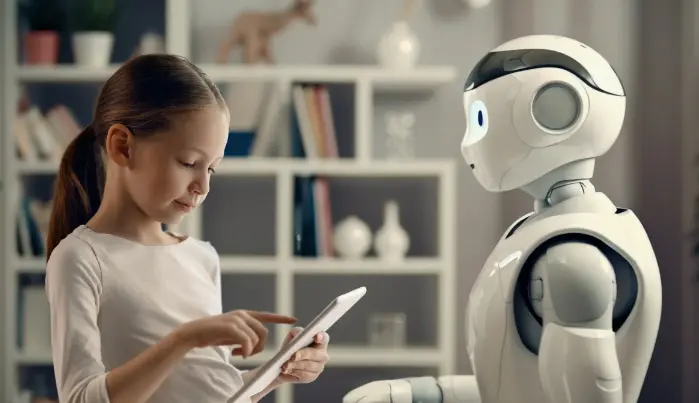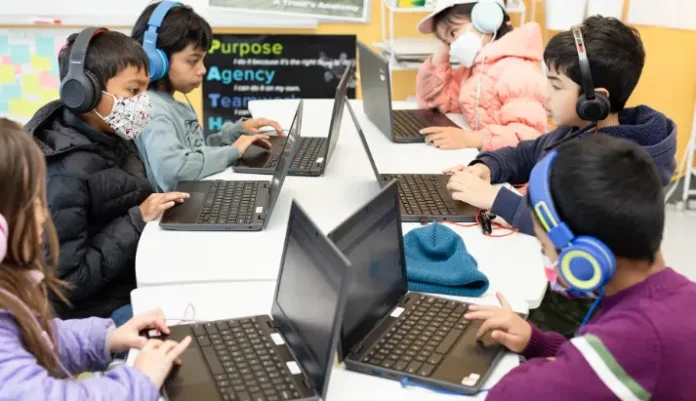Studying with ChatGPT’s AI tutor feels like having a 24/7 learning partner. It explains concepts, creates practice quizzes, and adapts to your level. While not perfect, it can boost understanding and confidence when used actively. Yes, AI tutors can work—if used wisely.
KumDi.com
Studying with ChatGPT’s AI tutor is becoming a popular way for students to learn faster and more effectively. Unlike traditional tutoring, this AI tool offers instant answers, personalized explanations, and unlimited patience. But does it really work for serious learning? Let’s explore the reality.
Artificial intelligence is no longer just a futuristic idea—it’s now part of everyday life. In education, one of the most interesting developments is the rise of AI tutoring, especially through tools like ChatGPT. Students across the world are experimenting with ChatGPT as a personal AI tutor, using it to clarify concepts, practice problems, and prepare for exams.
But what does studying with ChatGPT actually feel like? Does it truly help students learn more effectively, or is it just another tech trend? This article explores the real experience, the benefits, the drawbacks, and practical tips for making the most of AI tutoring.
Table of Contents

The Real Experience of Studying with ChatGPT
Studying with ChatGPT isn’t the same as reading a textbook or working with a human tutor. The experience often feels more like an interactive study session where you’re in control of the pace and direction.
- Instant responses: You can ask a question at any time—whether it’s midnight before an exam or during a quick study break.
- Adaptable explanations: If the answer seems too advanced, you can request a simpler explanation or ask for examples.
- Endless patience: Unlike a human tutor who may get frustrated, ChatGPT will repeat explanations as many times as needed.
- On-demand practice: Students often ask ChatGPT to generate quizzes, flashcards, or test-style questions.
For many learners, this creates a sense of having a “study buddy” available at all times.
Benefits of Studying with ChatGPT
- 24/7 Availability
Students are no longer limited to scheduled tutoring sessions. With ChatGPT, help is available anytime, anywhere. - Personalized Learning Paths
The AI adjusts its explanations based on how you phrase your questions, your level of knowledge, and the details you provide. - Engaging Interaction
Unlike static reading, ChatGPT can ask and answer questions, making study sessions more interactive. - Affordable and Accessible
Hiring a private tutor can be expensive. ChatGPT provides similar guidance at a fraction of the cost. - Confidence Booster
Immediate feedback and clarification reduce the anxiety of not understanding a topic, helping students build confidence in their skills.
Limitations and Challenges
While the advantages are compelling, there are also clear challenges when relying on AI as a tutor.
- Accuracy Issues
ChatGPT doesn’t always provide correct answers. Sometimes, it offers explanations that sound convincing but contain small errors. - Risk of Over-Reliance
Students may rely too much on AI, skipping the process of critical thinking and problem-solving on their own. - Lack of Emotional Support
A human tutor can encourage, motivate, and sense when a student is struggling emotionally—something AI can’t yet replicate. - Prompt Dependency
The quality of responses depends on the quality of the question. Vague prompts often produce shallow answers. - Curriculum Alignment
ChatGPT may explain a concept differently than your class materials, which can sometimes cause confusion.
Do AI Tutors Actually Work?
The big question remains: Do AI tutors really work?
The answer is: yes, they can—but with conditions.
ChatGPT works best as a supplementary tool rather than a complete replacement for human teachers. Students who get the most out of it usually:
- Ask specific and detailed questions.
- Use ChatGPT for active learning (quizzes, practice, problem solving).
- Cross-check answers with textbooks or notes.
- Treat ChatGPT as a learning partner rather than a shortcut.
When used this way, AI tutors can significantly improve understanding, recall, and even test performance.
Practical Tips for Studying with ChatGPT
To maximize effectiveness, students should approach AI tutoring strategically.
- Be Specific in Prompts
Instead of asking “Explain photosynthesis,” ask “Explain photosynthesis step by step at a high school level with a simple example.” - Request Multiple Formats
Ask ChatGPT to give summaries, diagrams, or real-world examples to reinforce understanding. - Generate Practice Questions
Use ChatGPT to create quizzes and then try to solve them without looking at the answers first. - Use Spaced Repetition
Revisit key topics periodically, asking ChatGPT to quiz you on past material. - Check for Accuracy
Always verify important information with reliable resources, especially in science and math.
Comparing ChatGPT to Human Tutors
While ChatGPT is powerful, it doesn’t completely replace human tutors. Here’s a quick comparison:
| Feature | ChatGPT AI Tutor | Human Tutor |
|---|---|---|
| Availability | 24/7 | Limited to schedule |
| Cost | Low | Often expensive |
| Personalization | Good, but prompt-dependent | Strong, adaptive |
| Emotional Support | None | High |
| Accuracy | High, but not perfect | Generally reliable |
| Patience | Unlimited | Varies |
This shows that while AI tutors excel in accessibility and scalability, human tutors still provide deeper insight and emotional guidance.
Long-Term Implications of AI Tutoring
AI tutoring is not just a passing trend—it’s shaping the future of education. Some long-term implications include:
- Blended learning: A combination of human teachers and AI tutors may become the standard.
- More personalized education: AI can adapt to each student’s pace and style of learning.
- Equity concerns: Students with better access to technology may benefit more.
- Skill shifts: Future students may need to learn “prompting skills” to maximize AI’s potential.
Conclusion
Studying with ChatGPT’s AI tutor feels like having a patient, always-available learning partner. It can explain concepts, quiz you, and adjust to your level of knowledge. For motivated students who use it actively and thoughtfully, the tool can dramatically enhance learning outcomes.
However, AI tutoring is not flawless—it makes mistakes, lacks emotional depth, and shouldn’t be treated as a complete replacement for human educators. The best results come from treating ChatGPT as a supplement to traditional learning.
In the end, the question isn’t whether AI tutors work—it’s how you choose to use them.

FAQs
Can ChatGPT replace human tutors completely?
Not entirely. While it’s powerful for explanations and practice, human tutors still provide motivation, emotional support, and deeper understanding.
Is ChatGPT always accurate?
No. While often correct, it can produce errors. Students should always double-check critical information.
What subjects does ChatGPT tutor best?
It performs well in math, science, writing, and language practice. Highly creative or subjective subjects may need human feedback.
How can students avoid over-reliance on AI tutors?
By using ChatGPT as a supplement—generating practice, clarifying doubts—while still studying independently and verifying answers.
Will AI tutors be part of the future classroom?
Yes. Many educators expect AI tutors to work alongside teachers, providing personalized support while humans handle guidance and emotional connection.




